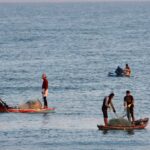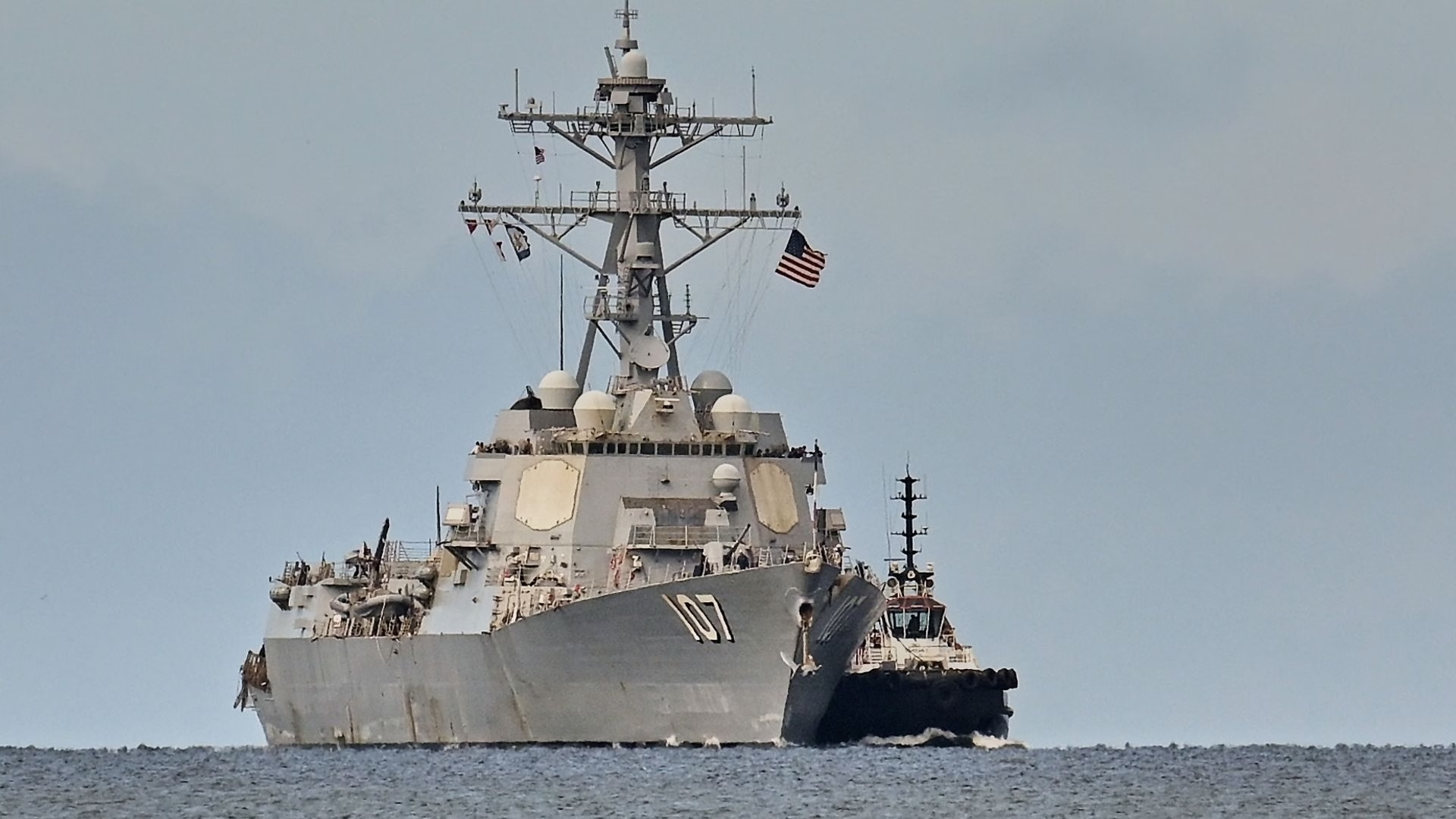
Surrounded by three walls on a land of ruins, as Israeli bombs continue to rain down from the skies, for many in Gaza, the sea remains the only open horizon, a shimmering promise of elusive freedom.
Its waters, and the fish within them, have long nourished Palestinians cut off from the world, partially easing the pain of Israel’s bombardment, punishing siege and starvation policies.
- list 1 of 3Packed soup kitchens feed Gaza as Israel blocks entry of aid trucks
- list 2 of 3Israel’s focus on political drama rather than Palestinian rape victim
- list 3 of 3Hamas returns another Israeli captive’s body as Gaza suffers aid shortages
end of list
Targeting a meal for his family, Salem Abu Amira – known to locals as “The Beast” – dives deep beneath the waves. Al Jazeera’s Ibrahim Alkhalili reports from Gaza City.
“People here call me ‘The Beast’ because I managed to catch a fish that was more than a metre and a half [5ft] long. It is rare – but the truth is I’ve caught many big fish,” Abu Amira tells Al Jazeera.
Free diving runs in Salem Abu Amira’s blood. He learned the craft from his father at a young age – a skill passed down through generations and a lifeline for his family.
Before Israel’s war, Gaza’s fishermen sailed far out to sea, where the waters teemed with fish. In 2020, the World Bank estimated that about 18,000 people in Gaza directly depended on fishing for their livelihoods, with an extended effect on more than 110,000 family members.
But Israel’s genocidal war decimated that and their lives.

“We can no longer reach the places we used to. Now we can only fish close to the shore – where there are no big fish,” Abu Amira says.
“Restrictions have been imposed on us since the beginning of the war and continue to this day. But I have no source of livelihood. I can’t just sit at home waiting for someone to support me,” he adds.
Advertisement
Before the war, Gaza’s fishermen hauled in more than 4,600 tonnes of fish each year, despite the constant risk of being arrested, injured, or killed by Israeli forces.
Since the war began, more than two years ago, most of their boats have been destroyed. The Ministry of Agriculture told the United Nations in a report that as of December 11, 2024, the Israeli military had killed 200 fishers and their associates out of approximately 6,000 individuals engaged in the fishing profession.
Those still trying to cast their nets just metres (some feet) from the shore have come under Israeli fire.
![Gaza's local fishermen preparing their boats before going out at sea [Al Jazeera]](https://www.aljazeera.com/wp-content/uploads/2025/11/dwed-1762413262.jpg?w=770&resize=770%2C513&quality=80)
In January, Israel declared Gaza’s waters a “no-go zone”, banning fishing, swimming, and any access to the sea.
The result has been devastating: Gaza has lost 94 percent of its catch, cutting off one of its last remaining sources of food.
Fishing, once a vital source of both income and nourishment, has been brought to its knees.
“Fishermen are the most exposed to danger. Often, the occupation forbids them from going to the sea, and free divers cannot get their diving gear – which affects their ability to work in the coming days,” Zakaria Bakr, head of the Fishermen’s Committees in Gaza, told Al Jazeera.
After months of displacement, Abu Amira has returned home – restless, hungry for a catch, and preparing his small boat to venture back into the waters.

“The Beast” will dive again, searching for fish he can sell at the market. For fishermen like him, the sea isn’t just a workplace, it’s a lifeline.
“I am determined to pass on my profession to my children. It is a pleasure and a hobby. Fishing relieves stress and provides a source of income,” he says.
After hours in the water, Salem surfaces with a lucky catch: Several fish and an octopus to feed his family and sell in the market.
For Gaza’s fishermen, the struggle is no longer just about survival. It’s about preserving a centuries-old bond with the sea, and holding on to the last sense of freedom they have left.
British Caribbean News


